Journal Boards
Owner
Editor in Chief
Editor
Editorial Board
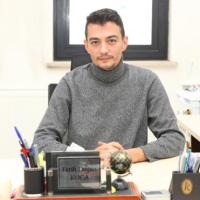
 Web
Web

 Web
Web
Secretary
Editorial Consultants
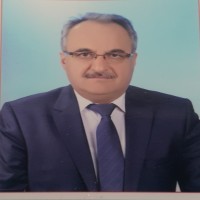
Statistical Editor

 Web
Web
Language Editor

Advisory Board
Profesör Ali Aydın, İstanbul Üniversitesi Veteriner Fakültesi Gıda Hijyeni ve Teknolojisi Bölümü'nde çalışmaktadır. Ali, veteriner hekimliği ve yüksek lisans derecelerini 1996 yılında Türkiye'de, gıda bilimi doktorasını ise İstanbul Gıda Hijyeni ve Teknolojisi Bölümü'nde tamamlamıştır. Öte yandan Ali, 15.07.1997 - 31.10.1997 tarihleri arasında Ludwig Maximillian Üniversitesi, Veteriner Fakültesi, Et Hijyeni ve Teknolojisi Bölümü'nde Misafir Bilim Adamı olarak çalışmıştır. Ali, 2008 yılında doktora sonrası faaliyet için Viyana Veterinerlik Üniversitesi'ni ziyaret etmiştir. Ayrıca, Georgia Üniversitesi Gıda Güvenliği Merkezi'nde 1 yıl çalışmıştır. 1996'dan beri İstanbul Üniversitesi'nde araştırmacı bilim insanı ve veteriner epidemiyoloji dersleri veren kıdemli öğretim görevlisi olarak çalışmaktadır. Bu yıllar içinde 60 araştırma projesinde proje lideri ya da araştırmacı olarak yer almıştır. Gıda kaynaklı virüsler de dahil olmak üzere çeşitli gıda kaynaklı patojenlerin prevalansı, insidansı, coğrafi dağılımı ve genetik ilişkileri üzerine hakemli uluslararası dergilerde 200'den fazla yayını ve 3000'e yakın atıfı bulunmaktadır.
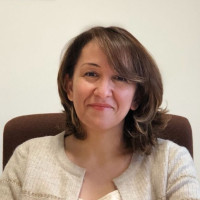
1992 Ankara Üniversitesi Veteriner Fakültesi mezunu olan A. Arzu Yiğit, aynı yıl başladığı Fizyoloji doktorasını 1997 de tamamlamış, 2003 yılında doçent, 2008 yılında Profesör olmuştur. Halen Başkent Üniversitesi Tıp Fakültesi Fizyoloji ABD da öğretim üyesi olup, aynı zamanda aynı Üniversitenin Deney Hayvanları Üretim ve Araştırma Merkez Müdürü olarak görev yapmaktadır. Başlıca çalışma alanları endokrin bozucular, antioksidan sistem ve deney hayvanı modelleridir.
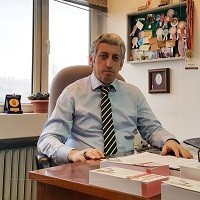
dölerme ve suni tohumlama
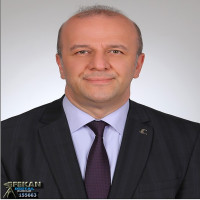
Short Bio:
Prof. Mariusz P. Kowalewski, PhD
Obtained his Doctor of Veterinary Medicine (DVM) degree from the Faculty of Veterinary Medicine at the University of Warmia and Mazury in Olsztyn, Poland, in 2002. From 2002 to 2006, he pursued his PhD in reproductive biology at the joint graduate program of the Faculties of Medicine and Veterinary Medicine, Justus-Liebig-University (JLU) in Giessen, Germany. Afterwards, 2006-2007 he completed postdoctoral training at the Institute of Veterinary Anatomy, Histology, and Embryology at JLU, and at the Texas Tech University Health Sciences Center (TTUHSC), School of Medicine, Department of Cell Biology and Biochemistry, Lubbock, Texas, USA, between 2007 and 2009. Since 2009, he has held the position of Principal Investigator, leading his own research group at the Institute of Veterinary Anatomy (IVA) within the Vetsuisse Faculty at the University of Zurich (VSF, UZH) in Zurich, Switzerland. In 2012, he received Venia legendi (Habilitation) in the fields of Veterinary Anatomy, Histology, and Embryology from UZH, and in 2014, he became a Professor of Functional Microanatomy at VSF, UZH.
Currently, he serves as a Professor of Veterinary Anatomy, Histology, and Embryology, and from 2019 serves as a Head of the Institute, and leads the Group of Reproductive Endocrinology at VSF, UZH. He is involved in teaching courses on veterinary gross anatomy, histology, embryology, developmental and reproductive biology.
His research interests encompass comparative reproductive biology and endocrinology of domestic animals, endocrine regulation of canine luteal and placental function, concepto-maternal communication in accompanying animals, and mechanisms of STAR-dependent and hypoxia-mediated steroidogenesis.
ORCID account: https://orcid.org/0000-0002-4565-7714
PubMed: http://www.ncbi.nlm.nih.gov/pubmed?term=Kowalewski%20MP%20%5BAuthor%5D